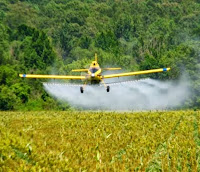Activist Post
 Genetic modification of plants—along with cloning of animals, remember Dolly the Sheep (1996)—has been going on without apparent second thoughts being given to the ramifications of what such technological advances do to the biosphere.
Genetic modification of plants—along with cloning of animals, remember Dolly the Sheep (1996)—has been going on without apparent second thoughts being given to the ramifications of what such technological advances do to the biosphere.
Recently, concerned citizens have taken a second look at GMO technology relative to the toxic chemicals used in the development of genetically modified food and seeds, plus their application in the environment. Currently, the Hawaiian island of Kauai County Council voted 6 to 1 on a bill that requires agriculture companies to disclose the chemicals they use in testing and growing GMO crops. Furthermore, the bill would prevent the use of those chemicals from being sprayed near schools, hospitals, residential areas, and waterways. [1]
Because of the year-round growing season Hawaii offers, biotech companies set up shop to grow and test their GMO innovations in paradise leaving residents concerned about being exposed to apparently many unknown toxic chemicals, which are not disclosed; they don’t want to be exposed to; and, consequently, must be made public knowledge.
According to AG Professional,
Originally the bill would have limited GM crop planting, but those provisions were eventually removed from the bill. Seed companies argued that the original bill would have forced them off the island completely, and they would have challenged the bill in court.
